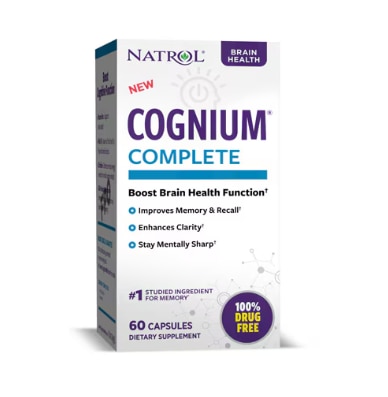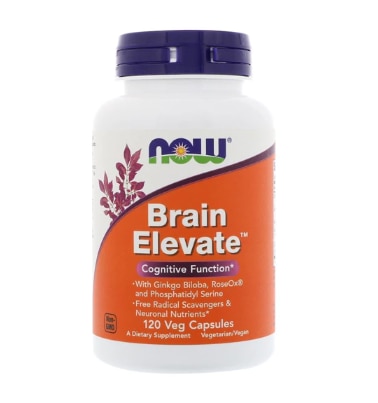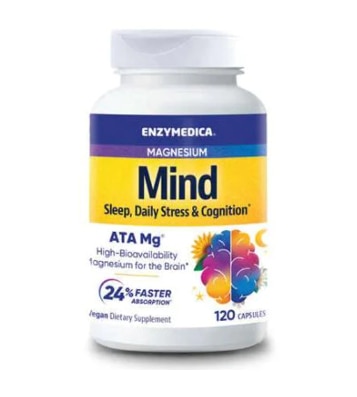Summer is here—a season that often inspires us to refresh and reset. As the days lengthen and the sun shines brighter, many of us feel a natural pull to lighten up, whether that means decluttering our living spaces, embracing outdoor activities or exploring new wellness trends. The feeling of a good cleanse can be truly invigorating, perfectly matching the revitalized energy of the season.
One you may want to pay particular attention to this season? A brain detox.
The idea is sweeping across the internet and flooding our feeds—all with the promise that the latest wellness fad facilitates everything from greater mental clarity to a more buoyant state of mind.
But is a brain detox as potent as it sounds, or is it, too, another passing craze?
Below, we’ll delve into what a brain detox entails, how to engage in oneand why it may behoove you to engage in one—now, and periodically throughout the year.
What is a brain detox?
The term “detox” was once reserved exclusively for clinical procedures that eliminate harmful, potentially fatal poison, alcohol, drugs and other toxins from the body.
During the 1990s, however, the word evolved to include internal cleanses that were marketed as a solution to a range of issues, whether it be unwanted weight gain or a shot in energy.
Now, “detoxes” include digital cleanses, juice fasts, oxygen detoxes, foot detoxes and, yes, “brain detoxes” (among others).
The concept behind it is this: The brain, just like the body, accumulates detrimental matter, such as environmental poisons (like mercury and lead), alcohol, drugs, certain medications, fluoride, pesticides, industrial chemicals, specific hormones (like that aforementioned cortisol) and glutamate—the most prevalent excitatory neurotransmitter in the brain that, in excess, may contribute to the onset of Alzheimer’s, Huntington’s and Parkinson’s disease.
A brain detox aims to eradicate these toxins from the brain and restore its function.
Proponents of the practice—with some reports showing that as many as 65,000 people recently participated in Dr. Caroline Leaf’s 21-day brain detox challenge—indicate that it may accomplish a great deal, with enhanced cognitive function and enriched alertness chief among its advantages.
How does a brain detox allegedly work?
In order to understand the theory behind a brain detox, it’s important to grasp the brain’s natural detoxification system.
Translation?
It’s your brain’s own waste removal system—a beautiful phenomenon of the human body that has drawn comparisons to the lymphatic system (a vital cluster of vessels, tissues and organs that shields your body from illnesses and infections and helps maintain a healthy balance of fluids in your internal network).
Much like your liver and kidneys, your glymphatic system is constantly at work behind the scenes, aiding in filtering and banishing toxins from the brain.
Here’s the catch, though: Science demonstrates that the glymphatic system is mostly inactive when you’re awake. Meaning, it’s primarily triggered when you’re at rest (especially during non-rapid eye movement, or quiescent, sleep). Then, norepinephrine—a hormone and neurotransmitter that plays a key role in your “fight-or-flight” response—diminishes, thus broadening your brain’s extracellular space and promoting the flow of cerebrospinal fluid through dense brain tissue.
Referred to as CSF, this fluid is critical to collecting the debris that has amassed in your mind and ultimately flushing it from your body. Think of it as a shower for your brain…and one that may leave it clear, refreshed and ready for the next day’s tasks upon awakening.
What are the real benefits of a brain detox?
While there’s a mounting body of research on the importance of the glymphatic system and how it’s driven by sleep, studies on brain detoxes are still in their infancy.
That said, what we know to date is that brain cleanses may:
Reduce the risk of neurogenerative diseases
Alzheimer’s. Parkinson’s. Lou Gehrig’s. Multiple sclerosis. Lewy body dementia. All are forms of what’s known as neurodegenerative diseases, or progressive illnesses that impact everything from cognitive function to muscle movements—and affect millions of adults in the U. S. Brain detoxes are believed to help remove beta-amyloid, a protein that’s deemed one of the culprits behind the development of several of these diseases, namely Alzheimer’s. Brain detoxes may also be useful in excising alpha-synuclein, a toxic protein linked to Parkinson’s.
Diminish brain fog
Forgetfulness, cloudiness, a lack of clarity: There are plenty of ways to describe brain fog. The condition (if you will) may be caused by an array of issues, such as crash dieting and Long COVID. Firing up the brain’s natural detoxification process is thought to revive mental sharpness.
Temper fatigue
We all know when our brains and bodies are fatigued. Our attention span may shrink, the thought of a simple undertaking can seem overwhelming, and we might experience lapses in our memory (car keys, anyone?). Blame our modern world, where we’re incessantly exposed to a surplus of often-unnecessary information and stimulation, thereby depleting our minds. Fans of brain detoxes assert that they can reverse this exhaustion—and bolster mental and physical energy.
So, is sleep the main component of a brain detox?
If you were to conduct a brain detox solely on the most valuable and abundant research, then, yes, deep, restorative sleep is the key to nurturing a well-functioning glymphatic system and the waste removal it provides.
However, emerging research suggests that there are other tactics you can also take to encourage those oh-so-important “vascular dynamics.” Let’s jump to that now.
How to perform a brain detox
In addition to aiming for seven to nine hours of sleep per night, consider:
Curbing your alcohol consumption
Alcohol may be socially acceptable—if not celebrated—but more and more studies reveal that even a moderate amount may be deleterious to your health, particularly if you’re a woman or assigned female at birth (AFAB). Why? Not only is alcohol a carcinogen, but it can also lead to heart disease and brain shrinkage (or atrophy). Both may have a negative effect on your brain’s capacity to cleanse itself.
Wearing a helmet
Happen to be a cyclist, motorsports fan or kitesurfer? Or do you play football, hockey and lacrosse? Think about wearing a helmet religiously, if you don’t do so already: Traumatic brain injuries (TBIs) are linked to malfunctions in the glymphatic system.
Adjusting your posture
Whether you work at a desk for the lion’s share of your day or have a job in the trades, be sure to keep your spine in check: A 2020 article published in Brain Science asserts that posture impacts glymphatic clearance. What’s more? An older animal study featured in The Journal of Neuroscience reveals that modifying your posture before you rest your eyes and specifically sleeping on your side may fortify your glymphatic system.
Giving intermittent fasting a try
Intermittent fasting (IF) has become wildly popular in recent years, in part because it may support weight loss, tissue health, and cognitive function. Other studies suggest that IF may shield your brain against neurodegeneration. Haven’t tried it yet? Consider eating all of your meals and snacks during an eight-hour window, such as eating breakfast at 9 a.m., lunch at 1 p.m. and dinner by 5 p.m.
Embracing exercise
It’s widely known that exercise is a cornerstone of physical health. Add glymphatic health to the list: Recent research shows that regularly exercising may also boost glymphatic flow, especially aerobic exercise.
Amping up your omega 3s
Omega-3 fatty acids, which can be found in everything from flaxseeds to salmon, are critical to cognitive health, in that they decrease oxidative stress, mitigate inflammation and foster blood flow in the brain. Additional data also demonstrates that omega-3s are key to glymphatic clearance.
Can’t seem to get enough in your diet? Give Nature’s Way’s Super Fisol Enteric-Coated Fish Oil a try. Containing both EPA and DHA, this supplement organically supports cardiovascular and joint health.†
Above all? Treat your brain as kindly as you do your loved ones. It, too, needs ongoing support—whether that’s destressing with a walk on a daily basis, learning a new skill, or simply telling it that it’s cherished…because all systems work best when they’re given tender, loving care.
†These statements have not been approved by the Food and Drug Administration. These products are not intended to diagnose, treat, cure or prevent disease.




